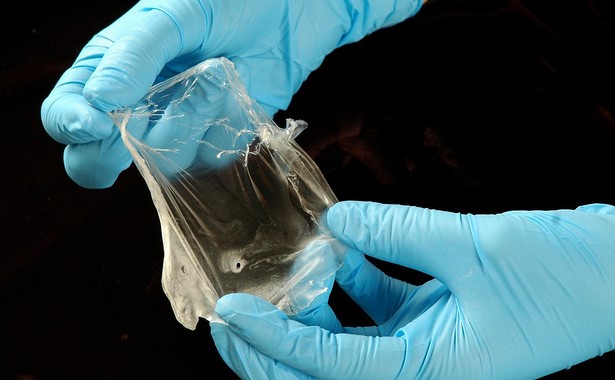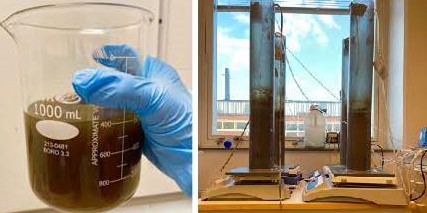Bioplastic production from wastewater

Describe the problem your research seeks out to solve
Conventional plastics are made from petrochemicals. Their accumulation in the environment and their negative impacts have been an alarming issue over recent years. Therefore, research on finding green and sustainable alternatives has drawn significant attention.
Describe the solution and the results of the new findings

The general opinion is that waste is something bad with an awful smell. However, in this resource recovery project, we turn the waste and wastewater into useful materials. Food waste and municipal wastewater are used as the raw material for the production of biopolymers called polyhydroxyalkanoates (PHAs). PHAs are biodegradable and biocompatible, meaning their degradation will cause no harm to the environment. These environmentally friendly biopolymers are stored inside bacterial cells when the microorganisms are subjected to environmental stress conditions. These PHAs can be extracted from the cells and further converted to bioplastics, a replacement for traditional petrochemical plastics.

How are the results of importance for society?
This project has an extensive outreach as plastics are one of the most common commodities in everyday life. Production of bioplastics from waste has considerable positive societal impacts and can be a big contributing factor in the transitioning into a circular economy.
How can your research be used? What is needed to implement it on the market?
One of the main barriers to the large-scale production of PHAs is the high production costs. Hence, the utilization of waste as the initial raw material can be a solution for reducing costs.
